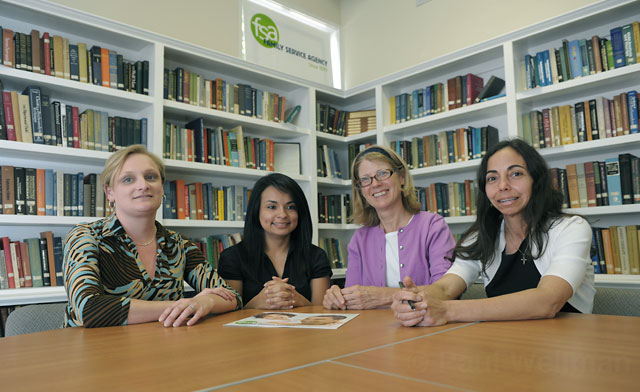County Deep-Sixes Funding for 75 Nonprofit Programs
$1.2 Million in Human Services Commission Grants on Chopping Block

In Andy Warhol’s imaginary universe, every American is guaranteed no less than 15 minutes of fame. But in County CEO Chandra Wallar’s grand plans, 50 Santa Barbara nonprofit agencies will be given a total of three minutes each to make their case to the Board of Supervisors on why county funding for their programs should not be completely deep-sixed, as Wallar has proposed. Wallar, the county’s new chief executive, finds herself grappling with a $72-million budget shortfall and has proposed — among other thing — all but eliminating the Human Services Commission outright and totally cutting the $1.2 million in funding the commission recommended for a host of programs designed to help the poorest and most vulnerable, mostly with such basics as food and shelter.
Members of the Human Services Commission, which was started in 1977, are hardly going quietly into Wallar’s budgetary good night and have already begun privately lobbying the supervisors who appointed them to their posts. “We’re getting help to people who are starving and without a roof over their heads,” said Marni Cooney, a member of the commission. “We’re keeping people off the streets. If this funding is eliminated, we’ll be cutting off our noses to spite our face.” Cooney said nonprofits can provide essential services much cheaper than county government. According to one oft-repeated estimate, the county would have to spend $7 for every $1 spent by a nonprofit to do the same job. Government grants, Cooney added, endow nonprofits with the credibility needed to secure matching funds. Bill Batty, head of the Family Service Agency — slated to lose $85,000 under Wallar’s proposal — estimated that for every buck of government funding, nonprofits leverage another $8-$10 in matching funds.
This year’s cuts did not come out of the blue. Last year, the Human Services Commission was placed on notice that its future was uncertain. That’s when the commission and its grant-making abilities were removed from the county’s General Fund — which sustains basic government — and underwritten with one-time revenues. With no one-time funds identified to keep the commission’s function going, Wallar proposed cutting the $1.2 million in grants the commission had recommended for the coming fiscal year. According to Cooney, the commissioners knew funding was uncertain even as they evaluated the 96 grant applications submitted. “But it was a risk we were willing to take,” she said.
In the past 10 years, she said, the need for such grants has increased dramatically while the commission’s funding stream has remained static. She noted that of the $1.2 million recommended, $357,000 was earmarked to nonprofits that help feed the hungry, $229,000 to help families in distress, $215,000 for the mentally ill, and $197,000 for housing relief. “I’m not saying I know what programs should be cut instead, but with human services funding, the basic bottom line is survival.”
Cooney noted that some supervisors, like Salud Carbajal and Janet Wolf, are pushing to maintain funding at current levels or, at the very most, subject the commission to the same across-the-board 15-percent cuts Wallar asked department heads to prepare for. Wolf has made clear her displeasure at the public process by which Wallar unveils her budget. She pushed, without support from her fellow supervisors, to get Wallar to host a public workshop on the dire choices facing county government and what the impact of the proposed cuts might be. If three minutes seems a paltry amount of time for 50 nonprofits to respond to the $1.2 million in cuts, what about the 20 minutes allotted to the county sheriff, looking at about $100 million in cuts? Supervisor Carbajal opposed Wolf on this, arguing the county has “kicked the can down the road too many times.” After last year’s budget workshop — at which those about to be cut expressed considerable pain and distress — Carbajal noted supervisors could not bring themselves to “pull the trigger.” Instead, he said, the supervisors plugged last year’s $44-million shortfall by approving expenditures of $30 million in one-time revenues. “That’s not sustainable,” he said.
Carbajal, up for reelection next year, stressed that he’d fight to restore Human Services funding, but said he would be looking to the public employee unions to make even bigger concessions than they have in years past. The county unions — on average and in aggregate — negotiated wage increases of 9.2 percent over the last three years compared to concessions worth $27 million. Facing even more intractable deficits than in previous years, Wallar — and the board majority — will be pushing for more lasting concessions. “Otherwise, we’ll be right back where we are next year this time,” said Carbajal.
The three minutes allotted for Carbajal and the rest of the supervisors to deliberate over the fate of the Human Services Commission budget will take place sometime between 1:15 and 2:30 p.m. on June 15.



